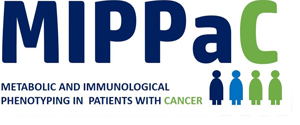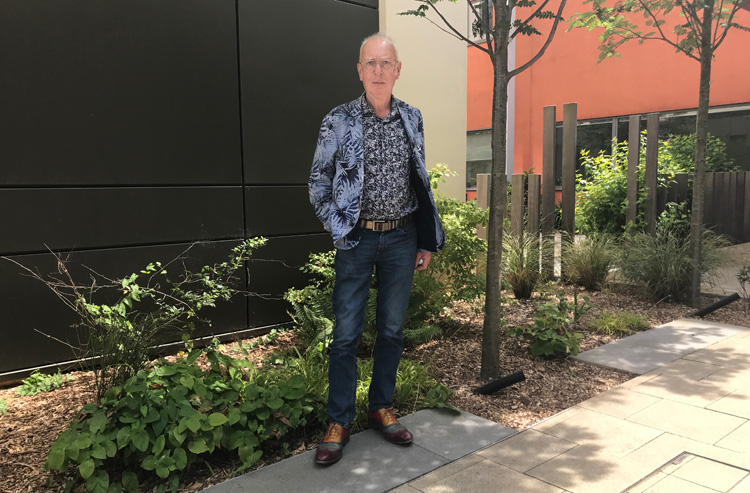Clinical study investigating wasting syndrome opens in Cambridge
Cachexia is a wasting syndrome that causes people to lose weight despite eating normally. Weight loss is severe, including loss of fat and muscle, loss of appetite, anaemia, weakness and fatigue.
In addition, weight loss may compromise their immune system and prevent them from benefiting from treatment designed to activate an immune response to fight cancer.
Although people with early stage cancers don’t often get cachexia, it can affect up to eight in 10 people with advanced cancer and it is more common in patients with lung and digestive cancers, including pancreatic cancer1. Scientists still do not fully understand the cause.
 Researchers at the University of Cambridge have recently opened a clinical study (Metabolic and Immunological Phenotyping in Patients with Cancer; MIPPaC) which aims to understand the mechanisms underlying weight loss in people with non-haematological cancers by investigating changes to metabolism and the immune system. This will help to facilitate future research to generate treatments to reverse weight loss and improve outcomes.
Researchers at the University of Cambridge have recently opened a clinical study (Metabolic and Immunological Phenotyping in Patients with Cancer; MIPPaC) which aims to understand the mechanisms underlying weight loss in people with non-haematological cancers by investigating changes to metabolism and the immune system. This will help to facilitate future research to generate treatments to reverse weight loss and improve outcomes.

Norman Ward, 71, a retired dental technician, is one of the participants in the study, part of the ‘not losing weight’ group. He is currently having treatment for both pancreatic and prostate cancer at Addenbrooke’s Hospital. He said “Losing weight every week gives cancer a chance to beat you. I hope that in the future patients will be given better treatments for cachexia, because if you can keep your weight up and stay strong, you will have a better chance of fighting the cancer.”
 Chief Investigator of the study, Dr Claire Connell, a Clinical Lecturer in Medical Oncology at the University of Cambridge and member of the Cancer Research UK Cambridge Centre (CRUK CC) Pancreatic Cancer Programme said: "We know that people with pancreatic cancer often suffer from weight loss, with progressive fatigue and weakness (together known as cachexia). This affects their quality of life.
Chief Investigator of the study, Dr Claire Connell, a Clinical Lecturer in Medical Oncology at the University of Cambridge and member of the Cancer Research UK Cambridge Centre (CRUK CC) Pancreatic Cancer Programme said: "We know that people with pancreatic cancer often suffer from weight loss, with progressive fatigue and weakness (together known as cachexia). This affects their quality of life.
In addition, weight loss may affect the function of their immune system and stop them from benefiting from our treatments. However, the underlying cause of weight loss in people with pancreatic cancer is unknown.
The aim of our MIPPaC Study is to understand the mechanisms underlying weight loss. This will help guide our future research and help us to design treatments that can alleviate or prevent weight loss and improve outcomes for our patients."
 Co-investigator Dr Tony Coll, of the Wellcome-MRC Institute of Metabolic Science, added: “Through our work on studying obesity, we have learned a lot about the signals that act through the brain to control how we eat and how we store energy in our body. As a researcher in metabolism and hormone action, I am really excited to use these insights to better understand cancer cachexia, a condition where hormonal and metabolic changes reduce, rather than increase, appetite and body weight.”
Co-investigator Dr Tony Coll, of the Wellcome-MRC Institute of Metabolic Science, added: “Through our work on studying obesity, we have learned a lot about the signals that act through the brain to control how we eat and how we store energy in our body. As a researcher in metabolism and hormone action, I am really excited to use these insights to better understand cancer cachexia, a condition where hormonal and metabolic changes reduce, rather than increase, appetite and body weight.”
 Dr Connell also mentioned: “The MIPPaC Study is dependent on the very kind enthusiasm of our participants, and we are also very grateful to Pancreatic Cancer UK, who have supported the project and provided the funding."
Dr Connell also mentioned: “The MIPPaC Study is dependent on the very kind enthusiasm of our participants, and we are also very grateful to Pancreatic Cancer UK, who have supported the project and provided the funding."
The study aims to recruit 40 patients with cancer, where half are losing and half are not losing weight, plus 20 further healthy volunteers to act as a control group. The study will be performed at Addenbrooke’s Hospital, Cambridge.
 In addition, Dr Connell will be working closely with the team of Cambridge and US scientists, the CANCAN team, on a new project to explore the underpinning mechanisms behind cancer cachexia. The team are set to receive nearly £2.5M as part of Cancer Grand Challenges, a major initiative co-founded by Cancer Research UK and the National Cancer Institute in the US – which aims to encourage the world’s leading cancer researchers to take on some of the toughest challenges in cancer research.
In addition, Dr Connell will be working closely with the team of Cambridge and US scientists, the CANCAN team, on a new project to explore the underpinning mechanisms behind cancer cachexia. The team are set to receive nearly £2.5M as part of Cancer Grand Challenges, a major initiative co-founded by Cancer Research UK and the National Cancer Institute in the US – which aims to encourage the world’s leading cancer researchers to take on some of the toughest challenges in cancer research.
 The CANCAN team is led by US researchers, who will work with Cambridge co-investigators Professor Sir Stephen O’Rahilly and Dr Tony Coll, of the Wellcome-MRC Institute of Metabolic Science, and Dr Giulia Biffi, co-lead of the CRUK CC Pancreatic Cancer Programme.
The CANCAN team is led by US researchers, who will work with Cambridge co-investigators Professor Sir Stephen O’Rahilly and Dr Tony Coll, of the Wellcome-MRC Institute of Metabolic Science, and Dr Giulia Biffi, co-lead of the CRUK CC Pancreatic Cancer Programme.
Read more about the CANCAN team and their award here.
If you would like further information about the MIPPaC study, contact the Early Phase Team, Cambridge Cancer Trials Unit, on 01223 348372 or email cctuep@addenbrookes.nhs.uk.